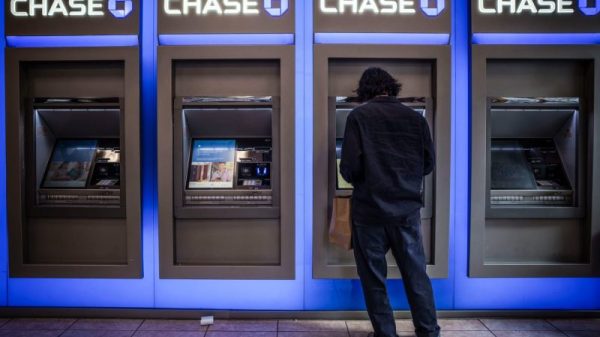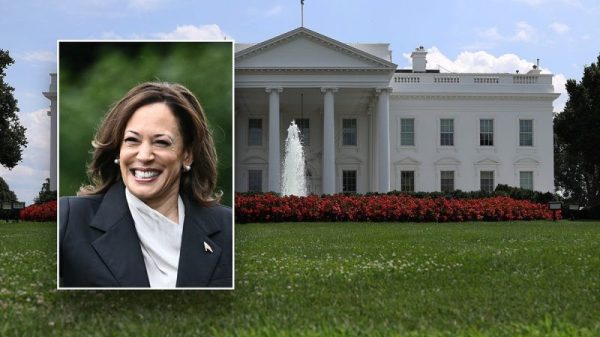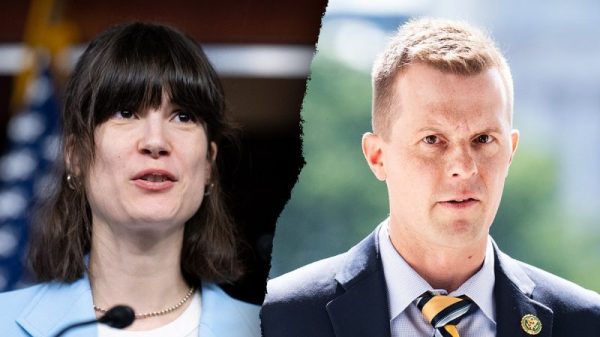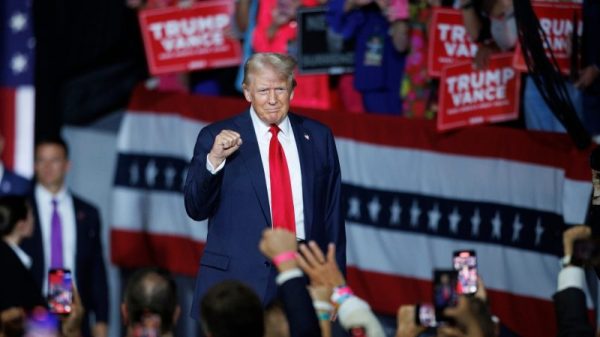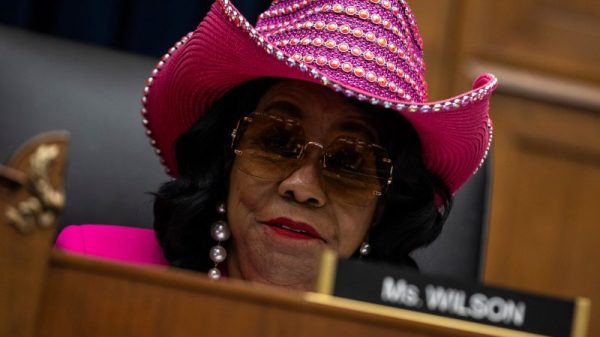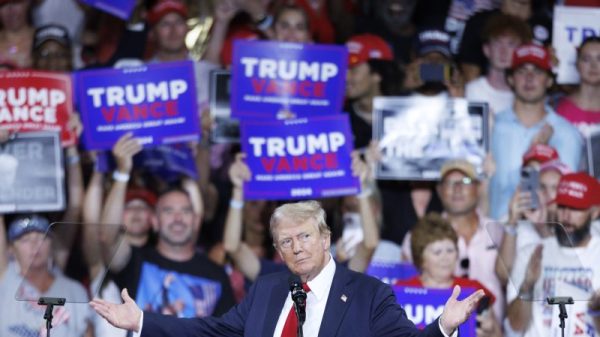Sam Bankman-Fried orchestrated a massive campaign-finance fraud in an attempt to buy favorable treatment in Washington for his once-booming crypto empire, prosecutors will argue in a Manhattan courtroom this week.
Under the scheme, Bankman-Fried allegedly doled out more than $100 million in funds stolen from FTX customers and then illegally routed tens of millions through two of his top lieutenants. Explaining how this fraud worked will feature centrally in the government’s sweeping case against him, according to public court documents.
Prosecutors will try to make the case that Bankman-Fried aimed to use his political operation as a flywheel for his multibillion-dollar fraud, siphoning customer money to maximize his Washington influence. He aimed to redeem his political capital, prosecutors will argue, for friendly treatment from policymakers, which in turn would allow his empire to grow — and let him keep siphoning customer money.
But Bankman-Fried’s crypto empire imploded. Now the 31-year-old faces both criminal and civil charges that he stole billions of dollars from customers and investors. He has pleaded not guilty to seven counts including wire fraud and conspiracy to commit securities fraud.
In addition to the criminal case, an army of lawyers representing over 1 million former FTX customers and creditors are still sifting through the rubble in a separate bankruptcy proceeding, trying to recover what they can of an estimated $8.7 billion tab that Bankman-Fried and his inner circle rang up. They are also trying to claw back over 300 political contributions that reached scores of members of Congress and outside groups that support them.
A spokesman for the U.S. attorney for the Southern District of New York, which is bringing the criminal case against Bankman-Fried, declined to comment.
Bankman-Fried’s political giving vaulted him from obscurity into the top ranks of Democratic megadonors in just a few years. Only financier George Soros gave more to Democratic causes in the 2022 election cycle, federal records show.
But that giving, prosecutors are set to argue, was the instrument of a brazen fraud. Bankman-Fried’s violation of campaign finance laws on such a huge scale “demonstrates the strength of his desire to purchase political clout — a desire so great that he stole customer funds to satisfy it,” they wrote in an August memo laying out the evidence they plan to present at trial.
“It’s the biggest such scheme I’ve ever seen alleged in a criminal matter,” said Stuart McPhail, a lawyer for Citizens for Responsibility and Ethics in Washington (CREW). CREW filed a complaint with the Federal Election Commission in December requesting an investigation into his political giving after Bankman-Fried, considered a Democratic donor, told an interviewer that it “was not generally known” that he donated equally to both parties, because all of his contributions to Republicans were “dark.”
“That was a confession to breaking campaign law, criminally,” McPhail said, pointing to the federal prohibition on political donors evading disclosure rules by convincing others to contribute and then reimbursing them.
Yet Bankman-Fried is not facing a separate charge for his campaign finance activity. Prosecutors included one in their original eight-count indictment of the former executive but dropped it after the government of the Bahamas said it was not part of the extradition agreement they negotiated last year to return Bankman-Fried to the United States.
Instead, prosecutors have signaled they will zero in on Bankman-Fried’s political activity to demonstrate their broader case about his alleged criminal intent. “The defendant wanted access to capital that he could use, in part, for political donations that would burnish his own image and improve the regulatory prospects of his business in the United States,” they wrote in their August filing.
Prosecutors’ central mission will be convincing jurors that Bankman-Fried committed fraud by misallocating customer funds, legal experts say. But they can also establish a damaging portrait of the defendant by demonstrating he conducted a vast, illegal influence-peddling scheme with that money.
“They think this is easy for jurors to understand, easy to see why it’s wrong to take money from another person to make a campaign donation,” said Harry Sandick, a former assistant U.S. attorney for the Southern District of New York. “They’ll want the jury to hear he’s a crook. If they can convince the jury he was a bad guy, they will increase their chances of getting a conviction.”
Prosecutors could also seek to use material they have gathered about Bankman-Fried’s political operation to prove he understood his conduct was wrong.
“The government will be trying to not just show he was trying to protect something he knew was not legal but that he made statements that sort of clarified the game he was playing,” said Columbia Law School professor Daniel Richman, a former prosecutor for the Southern District of New York.
Two of Bankman-Fried’s top lieutenants — Nishad Singh, FTX’s former director of engineering, and Ryan Salame, former co-CEO of FTX’s Bahamian subsidiary — have already pleaded guilty to breaking campaign finance law by making donations that Bankman-Fried reimbursed, among other charges.
Singh — who is set to testify as a witness for the prosecution — directed more than $14 million to Democratic candidates and causes, according to a tally by the Center for Responsive Politics. He has acknowledged he did not select the beneficiaries and was paid back partly with FTX customer money.
“I understood that the donations were in part for the benefit of Sam Bankman-Fried and FTX and their ability to be politically influential,” he said in a February court appearance. While he was unfamiliar with campaign finance law, he knew his conduct was wrong, he added.
Singh’s attorney did not respond to a request for comment.
For his part, Salame, who doled out more than $23 million to Republicans and right-leaning groups, is not cooperating with the government. But prosecutors in court filings have cited private messages he sent that described his participation in Bankman-Fried’s political operation.
In one, to a “trusted family member,” he said Bankman-Fried “want[ed] to donate to both democtratic [sic] and republican candidates in the US.” But the crypto executive would not give directly to Republicans himself “cause the worlds frankly lost its mind if you dontate [sic] to a democrat no republicans will speak to you and if you donate to a republican then no democrats will speak to you.”
In another, to a “confidant,” prosecutors said Salame explained the purpose of the contributions was “to weed out anti crypto dems for pro crypto dems and anti crypto repubs for pro crypto repubs,” and that donations routed through him would “weed out that republican side.”
An attorney for Salame did not respond to a request for comment.
Recipients of the largesse said they are still working to return the funds. For example, Emily’s List — which supports electing more Democratic women who support abortion rights — received $3.1 million from Bankman-Fried and Singh. Sara Spain, the group’s national press secretary, called the allegations against FTX’s former leadership “disturbing” and said the group is “engaged and cooperating with the multiple authorities seeking to reclaim these contributions.”
In more typical cases, recipients of tainted political money often donate an equivalent amount to charity. Many FTX beneficiaries did just that in the weeks after the company’s collapse. But FTX’s new leadership in February wrote to those who received contributions and requested they return the funds to help pay back customers and creditors.
Barbara Fried, Bankman-Fried’s mother, now finds herself ensnared in the matter, too. In a separate lawsuit, she and her husband, Joseph Bankman, were sued last month by John J. Ray, the corporate wind-down specialist managing FTX through its bankruptcy.
Ray is tasked with clawing back millions of dollars in FTX funds that the married Stanford law professors allegedly misappropriated to enrich themselves. And he argued Fried, who also co-founded a Democratic super PAC, coached her son on how to violate campaign finance laws.
In an email she sent Bankman-Fried in August 2022, Fried pointed to a contributor who would “only give in a non-disclosed form, and I would strongly urge you to do the same — or substitute someone else’s name,” according to the suit. A week later, she emailed her son again to “counsel strongly against giving in a disclosed form under your own name.” Bankman-Fried replied he “agreed that it doesn’t make sense for me to give disclosed.”
Lawyers for Bankman and Fried said in a statement the claims in the suit are “completely false.” FTX’s new leadership and the committee representing the bankrupt company’s creditors did not respond to requests for comment.
As Bankman-Fried’s criminal case starts this week, federal prosecutors are not seeking to hold the former executive accountable directly for his campaign-finance activity. But his alleged conduct “looks blatantly into the core of what the law is meant to stop,” said UCLA Law professor Richard Hasen, an expert in campaign finance law. “There are a few red lines left, and if proven, this easily crosses them.”







